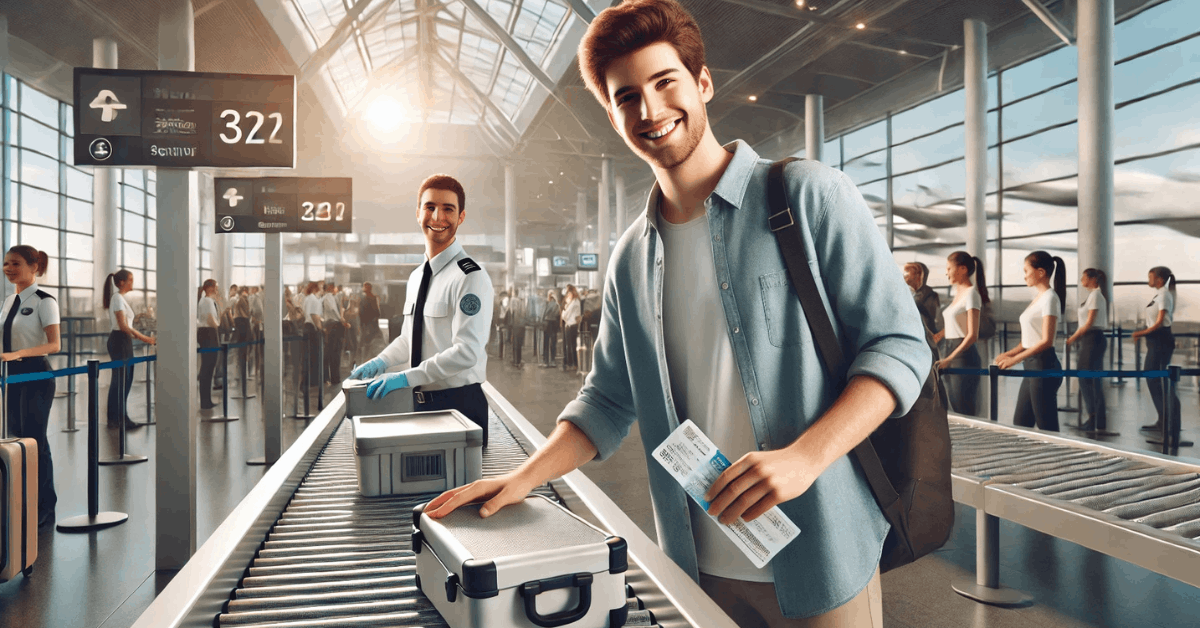Traveling opens the door to adventure but can also challenge your health. This article provides practical tips for staying healthy while traveling, ensuring you feel your best throughout your journey.
These tips will help you avoid common setbacks, from maintaining fitness to managing nutrition and sleep. Prioritizing your well-being allows you to enjoy every moment of your trip without interruptions.
Get Ready for Your Trip
Good preparation sets the foundation for a smooth and healthy journey. Planning ensures you have everything you need to stay well.
Pack Essentials for Health
Prepare a kit with essential health items to avoid unnecessary hassle. Having the right supplies makes it easier to handle unexpected situations.
- Medications for ongoing treatments or emergencies.
- Vitamins to support your immune system.
- Hand sanitizers and disinfectant wipes for hygiene.
- Sunscreen and bug repellents for skin protection.
- First-aid supplies for minor injuries.
Check Vaccinations and Health Rules
Knowing health requirements helps you avoid delays and risks. Check these details well ahead of time.
- Research required vaccinations specific to your destination.
- Carry documents proving your vaccination status.
- Learn about local health risks and preventive measures.
- Pack any special items suggested by health officials.
Create a Health Checklist
A checklist ensures nothing is forgotten, keeping you fully prepared. Review it thoroughly to cover all your bases.
- Include medications, health supplies, and insurance details.
- Note contact information for local healthcare providers.
- Plan for food, water, and rest needs during your trip.
Stay Active While Away
Keeping active helps maintain energy levels and promotes overall well-being. Simple activities can make a big difference in how you feel.
Include Physical Activities in Your Plans
Staying engaged in movement helps boost your stamina. Look for activities that align with your interests.
- Go for walking tours to explore and stay fit.
- Try hiking, biking, or swimming in safe areas.
- Schedule short outdoor sessions to keep moving.
Use Fitness Facilities
Using available fitness options can help you stay consistent. Many accommodations offer convenient ways to stay active.
- Check if your hotel gym has equipment for basic workouts.
- Search for nearby fitness centers offering day passes.
- Use apps to find safe jogging paths or group activities.
Do Simple In-Room Exercises
Even in small spaces, you can stay active with basic routines. These exercises require minimal equipment and effort.
- Do bodyweight exercises like push-ups, squats, or planks.
- Stretch regularly to relieve tension after long periods of sitting.
- Use a resistance band for added variety and strength training.
Eating Well While Away
A balanced diet keeps you energized and supports your overall health. Wise food choices are key, even when options are limited.
Choose Healthy Meals Out
Making mindful choices at dining spots can help you maintain balance. Look for options that align with your health goals.
- Pick grilled or baked items over fried dishes.
- Include vegetables and lean proteins in your meals.
- Avoid heavy sauces and excessive sugar or salt.
- Opt for smaller portions or share meals when possible.
Pack Healthy Snacks
Carrying your snacks helps you avoid unhealthy temptations. Choose portable and nutritious options.
- Bring nuts or trail mix for long-lasting energy.
- Pack fresh fruits like apples or bananas for quick nutrition.
- Include protein bars for a convenient meal replacement.
- Store snacks in resealable bags for freshness.
Stay Hydrated and Limit Caffeine
Hydration is essential to keep your body functioning correctly. Be mindful of how much caffeine you consume.
- Drink plenty of water throughout the day.
- Carry a reusable water bottle to stay prepared.
- Limit coffee and energy drinks, especially in the evening.
- Avoid alcohol, as it can dehydrate you.
Getting Enough Rest
Rest and recovery are just as important as activity. Quality sleep helps your body recharge and reduces stress.
Why Sleep Matters?
Consistent sleep helps your body function at its best. Small changes can make a big difference.
- Stick to a regular sleep schedule, even while away.
- Aim for 7-9 hours of rest each night.
- Avoid screens and bright lights before bedtime.
Handle Time Zone Changes
Adjusting to a new schedule can minimize fatigue. Focus on gradual changes to help your body adapt.
- Shift your schedule a few days early when possible.
- Use natural sunlight to reset your internal clock.
- Stay active during the day to regulate your energy levels.
Create a Sleep-Friendly Space
Setting up a relaxing environment improves sleep quality. Minor adjustments can help you rest better.
- Bring earplugs or a sleep mask to block noise and light.
- Adjust the room temperature for comfort.
- Use calming scents like lavender to promote relaxation.
Keeping Stress Under Control
Managing stress is essential to maintaining your overall well-being. Simple techniques can keep you feeling balanced.
Avoid Burnout
Quick practices help you reset and stay focused. They take just a few minutes to implement.
- Try mindfulness exercises to stay present.
- Use breathing techniques during stressful moments.
- Take short breaks to unwind and recharge.
Stick to a Routine
A familiar routine can help you feel more grounded. Build consistency wherever possible.
- Set aside time for daily habits like reading or journaling.
- Prioritize meals and rest to keep your body on track.
- Maintain a balance between activities and downtime.
Stay Connected for Support
Reaching out to loved ones helps ease emotional strain. Make it a habit to stay in touch.
- Schedule regular calls or messages with friends and family.
- Share your experiences to feel more connected.
- Use video chats or social media for quick updates.
Dealing with Health Issues
Preparation and awareness can reduce the impact of common problems. Focus on prevention and early action.
Prevent Illnesses and Dehydration
Simple steps can help you avoid common health risks. Staying cautious makes all the difference.
- Avoid uncooked or street foods if unsure of hygiene standards.
- Drink only bottled or filtered water when necessary.
- Stay hydrated by drinking water regularly throughout the day.
Specific Health Precautions
Some conditions need extra attention, depending on your plans. Being informed helps you respond effectively.
- Protect your skin with sunscreen to avoid burns.
- Take motion sickness remedies if prone to nausea.
- Follow the advice for altitude sickness prevention in high areas.
Know When to Seek Help
Recognizing severe symptoms ensures quick treatment. Never ignore signs of worsening health.
- Visit a doctor if you have a persistent fever or severe pain.
- Know local emergency contact numbers in advance.
- Carry details of insurance or medical coverage with you.
Stay Clean and Safe
Personal hygiene and safety precautions can protect you from avoidable risks. Small habits can make a big difference.
Use Hand Sanitizers and Masks
Hygiene is critical to preventing infections. Keep these items handy for added protection.
- Wash hands often with soap and water.
- Use hand sanitizers if washing isn't possible.
- Wear a mask in crowded areas for extra safety.
Avoid Crowds
Limiting close contact helps reduce exposure. Minor adjustments can enhance your safety.
- Keep distance in crowded spaces like lines or markets.
- Choose off-peak times for public transport or attractions.
- Avoid unnecessary physical contact with strangers.
Drink Safe Water
Water safety is vital to prevent illness. Always check what you consume.
- Stick to sealed or filtered water if unsure of quality.
- Avoid ice in drinks unless it's made with safe water.
- Use water purifiers or tablets when needed.
Final Word: Staying Healthy on the Go
Prioritizing your health ensures a safer, more enjoyable journey. Simple habits like eating well, staying active, and getting enough rest make all the difference. Addressing potential risks ahead of time keeps you prepared for any challenges.
Following these practical steps helps you stay energized and maintain your well-being. With these tips for staying healthy while traveling, you can focus on making the most of your adventure.

















